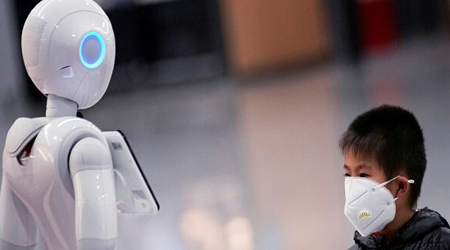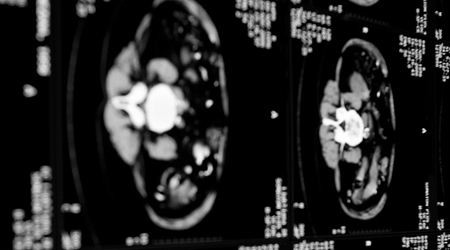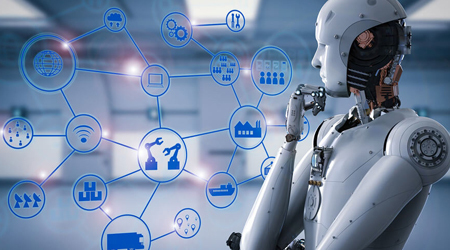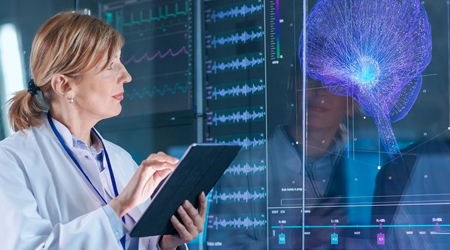How Big Data & AI is used in Healthcare System to Combat Coronavirus Outbreak?
 By Anolytics | 27 March, 2020 in AI in Healthcare | 6 mins read
By Anolytics | 27 March, 2020 in AI in Healthcare | 6 mins read

Coronavirus or scientific name COVID-19, is one the most deadly virus of the century infected more than half of the millions and killed tens of thousands of people globally. Being declared a pandemic by WHO, this infection is spreading among the people at a very fast speed, bringing down the mass population at the hospital bed affecting the world economy.
As, coronavirus is a highly contagious disease, worldwide Governments have lockdown the cities to stop or minimize the further spread of infection due to community transmission. However, this kind of approach is also affecting the economic activities, impacting the global economy due to halted productions of goods and services.
Actually, the reason behind lockdown is that, there is no medicine or vaccine specifically developed to treat or cure the coronavirus infected patients. Though, medical researchers and scientists are endeavoring day-night with their best efforts to develop the medicine, but till than controlling this infection spread in more humans is the best option to minimize its post-impact on the whole world in terms of causalities and economic growth.
AI in Healthcare
However, meanwhile, countries are using the cutting-edge and most advance technologies into the healthcare system to combat the coronavirus. And AI in healthcare is playing a vital role in fighting with this disease and assist medical staff to minimize their efforts and help patients to recover soon without risk of community transfer.
Though, Machine Learning (ML) and Artificial Intelligence (AI) based systems, machines and models are being used in hospitals, medical centers and healthcare organizations to track the activities of patients, monitor their health, assist them physically or give the useful information of patients to the doctors to provide the right treatments and care.
Actually, there are many AI-enabled devices, machines, systems and applications can be used to deal during the treatment and care of patients fighting with such deadly disease. So, right here we will discuss how big data and AI is used in the healthcare system to combat the coronavirus outbreak in the different part of the countries globally.
AI-enabled Robotics
Robotics technology is not new to the world, but AI-enabled robots are playing a crucial role in assisting medical staff or helping patients. It is used to deliver food, spray disinfectants and performed basic diagnostic functions, in order to minimize the risk of cross-infection, which is the most dangerous part of coronavirus transmission.
In various hospitals, robots are used to diagnose and conduct thermal imaging to check body temperature and other symptoms in humans. In China, Shenzhen-based Pudu Technology, which usually makes robots for the catering industry, installed its machines in more than 40 hospitals all over the country to help medical staff.
AI-enabled Drones
Similarly, AI in drones developed with the help of machine learning technology to train such autonomous flying objects to perform various actions at places where humans can’t reach easily or need extra time or effort to complete the action.
Actually, AI-enabled drones are equipped with multiple advance features like a high-resolution camera with computer technology to detect objects and navigate automatically while controlled by the people distantly to deliver goods easily.
Also Read: How to Improve Computer Vision in AI Drones Using Image Annotation Services
Amid coronavirus control, Drones are also flying with QR code placards that can be scanned to register health information. While agriculture drones that are used for spraying pesticides are now used to spray disinfectants in the countryside.
Furthermore, during the lockdown, face recognition enabled Drones are also being used to alert or announce warnings to the citizens to not come out of their homes and also advise them to wear a mask and maintain the social distancing.
In China, drones are used to alert people while creating a kind of automated surveillance in infected areas. The drones are also being used to inform people about the areas that could be potentially infected, thanks to the integration of AI in drones.
Autonomous Vehicles
Though, self-driving cars are not full-fledge in use, but AI-enabled driverless autonomous vehicles are used to deliver essential products. To avoid human contacts at coronavirus hospitals and healthcare centers, autonomous vehicles are proving to be of great utility in delivering essential goods like medicines supplies and various foodstuffs.
These driverless vehicles are trained and developed with AI-based technology to detect objects and visualize their surroundings through computer vision and sensor technology to move in the right direction without any collision.
Also Read: How to Improve Computer Vision in Autonomous Vehicles using Image Annotation Services
And some of the autonomous vehicles are also used in China is used to disinfect hospitals. Apollo, a Baidu’s autonomous vehicle platform, working jointly with self-driving Car Company to deliver supplies and food to a big hospital.
Facial Recognition System
Using computer vision technology, the face recognition system is utilized to detect humans. And AI-enabled security cameras is making security and surveillance system more effective to monitor the human activities around the cities.
Meanwhile, AI companies using big data are also developing a dashboard for face recognition and infrared temperature detection in all the leading cities where mass gathering or movement of people happens every day.
Such AI security camera system also helping healthcare authorities and security agencies to monitor the people quarantined step outside during lockdown. It can detect people wandering in groups or not wearing the facemasks.
Also Read: How Semantic Segmentation & Landmark Annotation Improves Facial Recognition
Shared Big Data for Analysis
The AI and ML-based models are developed with a huge amount of data sets from that particular field. Similarly, in the case of coronavirus outbreak control and treatment, the big data is analyzed to predict the further spread of such a virus.
Social media giant, Facebook is working with researchers at Harvard University’s School of Public Health and the National using Hua University, in Taiwan, sharing anonymized data about people’s movements and high-resolution population density maps, which help them forecast the spread of the virus in other parts of the different nations.
Also Read: Top Benefits of Big Data Analytics in Healthcare Industry
This social media networking website is also helping partners understand how people are talking about the issue online, via tools to aggregate social media posts talking about such an epidemic using sentiment analysis. Previously, Google search data has been used to track infectious diseases helping healthcare authorities to take preventive measures timely.
Similarly, Smartphone apps are also being used to keep a tab on people’s movements and ascertain whether or not they have been in contact with an infected person. A leading Chinese telecom company China Mobile using to send text messages to state media agencies, informing them about the people who have been infected in the country.
Medicine and Vaccine Development
To deal with COVID-19 like new virus, developing the medicine and vaccine became the challenging task for the researchers to cure the infection among the patients. Again AI is here not only integrated into machines through machine learning but playing a great role in discovering the right drug as soon as fast for COVID-19 like new diseases.
Actually, in drug medicine, AI can help in various ways to combat this deadly disease. AI is helping medical researchers and doctors to rapidly develop antibodies and vaccines for the Covid-19 virus, scan through existing drugs to see if any could be repurposed and design a drug to fight both the current and future coronavirus outbreaks.
Even, an AI-driven platform for drug discovery has identified nine potential drugs that can relief against Covid-19 and six of them are already approved in many countries and used by doctors to cure patients helping them to recover.
Also Read: How Computer Vision Can Improve Accuracy of Diagnosis in Medical Imaging Analysis
It can identify molecules with potential effects on the coronavirus replication. The fact that this time the potential treatments were found among existing drugs marks a significant improvement over previous efforts to use AI against Covid-19.
Meanwhile, Google-owned AI Company, DeepMind, has used its AlphaFold system to release structure predictions of several proteins associated with the virus. AI is also helping to develop the vaccine which could take 18 to 24 months.
Doctors using the medical images data of coronavirus infected person to understand the complexities of infection and analyze the epidemiologic characteristics, clinical manifestations, chest images, and laboratory findings. And the diagnosis of 2019-nCoV pneumonia can be used with deep learning to train the AI models to detect similar symptoms among patients.
Also Read: Top Five Best Usages of Artificial Intelligence in Healthcare Medical Imaging
Summing-up
Overall, AI integrated into the various system, machines and devices are making the healthcare system more automated with an acceptable level of accuracy. And if machine learning engineers and data scientists use more quality healthcare training data to develop such AI models, it would become easier to predict or combat with such deadly diseases.
Also Read: A Complete Image Annotation Solution for Object Detection in AI and Machine Learning
Anolytics, provides the healthcare training data in the form of annotated images of radiology scans like MRI, CT Scans that are used to train the computer vision-based AI models. It can annotate all medical imaging data to provide healthcare training data using various popular image annotation techniques like semantic segmentation and polygon image annotation for organ segmentation and disease diagnosis with the best level of accuracy.
please contact our expert.
Talk to an Expert →
You might be interested

- AI in Healthcare 16 May, 2020
Best Diagnostic Imaging Techniques for Using AI in Medical Diagnosis
Artificial intelligence (AI) and machine learning have enough potential to make various tasks in the healthcare industry
Read More →
- AI in Healthcare 11 Dec, 2020
Best Uses of Artificial Intelligence in Dentistry
Artificial intelligence (AI) is a branch of computer science that describes the research and development of computer-gen
Read More →
- AI in Healthcare 10 Jan, 2022
How AI is Improving Emergency Room Situations in Healthcare
Artificial Intelligence software and technologies have changed a multitude of industries in recent years, including educ
Read More →